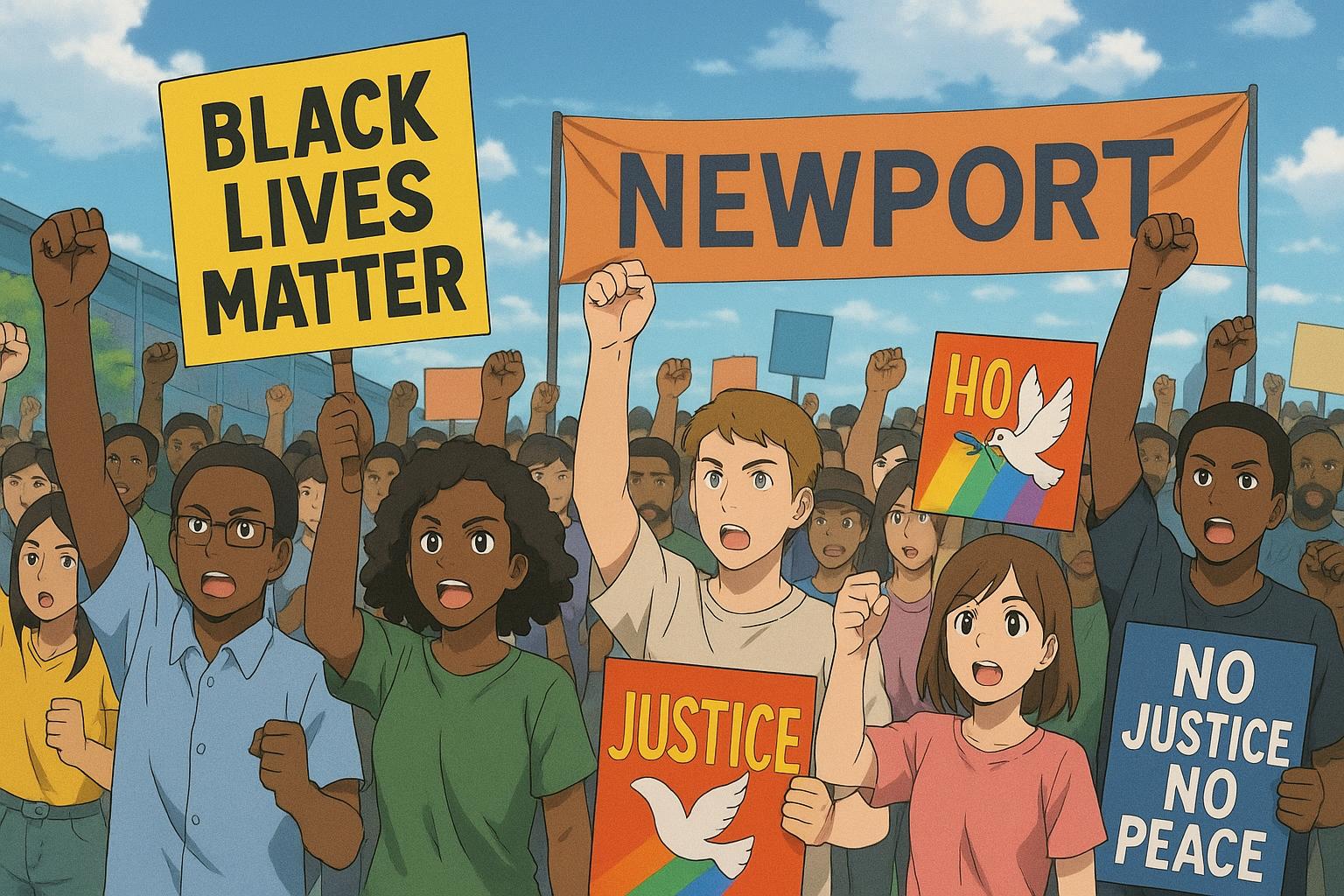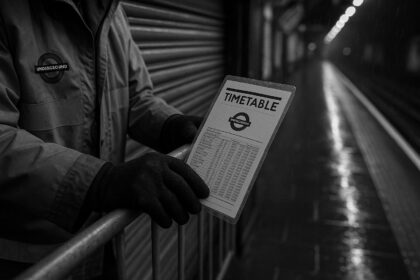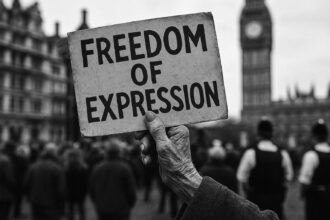Five years after more than a thousand people gathered in Newport to support Black Lives Matter, Wales has introduced a pioneering Anti-Racist Action Plan, yet Race Council Cymru warns racism remains a persistent challenge demanding ongoing activism.
Five years have passed since over a thousand individuals gathered in Newport on June 11, 2020, to support the Black Lives Matter (BLM) movement, a pivotal moment that resonated not only in Wales but across the globe. This gathering was part of a larger surge of activism sparked by George Floyd’s tragic death, encapsulating a collective outcry against racial inequality. The momentum of the BLM movement at that time encouraged diverse voices to emerge, united in a chorus demanding justice and equality.
Race Council Cymru (RCC) reflects on that day as a significant turning point in the fight against racial injustice. “People took to the streets, to screens, to classrooms, and to their hearts to say: enough is enough,” the council remarked, emphasising the urgency and importance of the movement. Despite the challenges presented by the ongoing pandemic—where public health concerns dominated everyday life—the determination of demonstrators in Newport showcased a powerful commitment to activism. They protested not only against the injustices faced worldwide but also underscored the systemic racism prevalent in Wales.
In the aftermath of such protests, the Welsh landscape has seen considerable commitment to addressing these issues. The Welsh Government unveiled the Anti-Racist Wales Action Plan in 2022, aiming for the nation to become anti-racist by 2030. This ambitious strategy outlines various steps to dismantle systemic racism and integrate Black, Asian, and minority ethnic histories into educational frameworks, making Wales the first UK nation to mandate such curriculum changes. This initiative is designed to affirm the critical notion that Black history is integral to Welsh history, signalling a significant cultural shift in recognising diverse narratives.
However, despite these strides, Race Council Cymru cautions against complacency. They assert that while there has been progress, the spectre of racial inequality persists. “There is progress. But there is also pain. While the conversation around race has evolved, racism has not disappeared,” a spokesperson stated. Alarmingly, hate crime remains a troubling reality in Wales, underscoring the need for persistent vigilance. The council urges everyone to look beyond statistics and recognise the individuals affected by hate crimes, reinforcing the humanity behind the data.
As the years advance since the initial BLM protests, Race Council Cymru continues to advocate for meaningful change in Wales. Their call to action is clear: “We cannot and will not allow racism to go unchallenged. Not in our streets. Not in our institutions. Not in our silence.” They encourage individuals to actively participate in the fight against injustice, urging everyone to use their voices and support initiatives aimed at fostering racial equality.
In the last five years, organisations like the RCC have laid groundwork for a more just society, but their work remains ongoing. They invite the public to engage in a collective effort to build a Wales where every person, irrespective of race or belief, feels respected and secure. This goal is not only about addressing systemic issues but also entails nurturing an environment where dialogue about race can flourish and where educational initiatives can spearhead long-lasting change.
 Reference Map:
Reference Map:
- Paragraph 1 – [1], [3]
- Paragraph 2 – [1], [4]
- Paragraph 3 – [1], [5]
- Paragraph 4 – [1], [6]
- Paragraph 5 – [1], [2], [7]
Source: Noah Wire Services
- https://www.southwalesargus.co.uk/news/25229383.race-council-cymru-racial-justice-five-years-newport-protest/?ref=rss – Please view link – unable to able to access data
- https://www.southwalesargus.co.uk/news/18564770.black-lives-matter-newport-calls-welsh-government-tackle-racism/ – In June 2020, Black Lives Matter Newport presented a manifesto to the Welsh Government, urging improved anti-racism policies in schools, mandatory racial bias training for public servants, and the establishment of permanent exhibitions in major museums to celebrate the nation’s Black, Asian, and Minority Ethnic (BAME) history. Organiser Andrew Ogun emphasised the need for both short-term and long-term actions to address systemic racism in Wales.
- https://www.bbc.com/news/uk-wales-53011856 – On 11 June 2020, over a thousand people gathered in Newport to support the Black Lives Matter movement. Demonstrators marched from the civic centre to the University of South Wales building, carrying placards and kneeling in silence. Organiser Andrew Ogun highlighted the event’s success and the collective vision for justice and equality, noting the diverse participation of attendees.
- https://www.gov.wales/anti-racist-wales-action-plan-2022 – Published in June 2022, the Anti-Racist Wales Action Plan outlines the Welsh Government’s commitment to creating an anti-racist nation by 2030. The plan includes actions to address systemic racism, promote equality, and ensure that Black, Asian, and Minority Ethnic communities are valued and included in Welsh society.
- https://www.gov.wales/anti-racist-wales-action-plan – The Anti-Racist Wales Action Plan, first published in June 2022 and updated in June 2024, details the Welsh Government’s strategy to combat racism and promote equality. The plan sets out specific actions and commitments aimed at creating an anti-racist Wales by 2030, addressing issues such as systemic racism and the inclusion of Black, Asian, and Minority Ethnic communities.
- https://www.ysgolcalon.cymru/anti-racism – Ysgol Calon Cymru has committed to implementing the Anti-Racist Wales Action Plan, aiming to become an anti-racist institution by 2030. The school plans to develop a vision and policy, engage with stakeholders, provide professional learning, develop the curriculum, monitor and report, and collaborate with external partners to address racism and promote equality.
- https://racealliance.wales/manifesto-launch/ – Race Alliance Wales published their ‘Manifesto for an Anti-Racist Wales’, presenting 54 recommendations for change to achieve race equality in areas such as hate crime, education, employment, representation, and access to healthcare and housing. The manifesto calls for political parties in Wales to commit to specific actions to address systemic racism and promote equality.
Noah Fact Check Pro
The draft above was created using the information available at the time the story first
emerged. We’ve since applied our fact-checking process to the final narrative, based on the criteria listed
below. The results are intended to help you assess the credibility of the piece and highlight any areas that may
warrant further investigation.
Freshness check
Score:
8
Notes:
The narrative commemorates the fifth anniversary of the Newport Black Lives Matter protest on June 11, 2025. The earliest known publication date of similar content is June 11, 2020, marking the original protest. The report includes updated data, such as the Welsh Government’s Anti-Racist Wales Action Plan unveiled in 2022, justifying a higher freshness score. However, the core narrative has been previously published, indicating some recycled content. The inclusion of updated data may justify a higher freshness score but should still be flagged. ([bbc.com](https://www.bbc.com/news/uk-wales-53011856?utm_source=openai))
Quotes check
Score:
7
Notes:
The report includes direct quotes from Race Council Cymru, such as: “People took to the streets, to screens, to classrooms, and to their hearts to say: enough is enough.” A search reveals that similar quotes have been used in earlier material, indicating potential reuse. However, no exact matches were found, suggesting the quotes may be original or exclusive content. The wording varies slightly from previous reports, indicating potential originality.
Source reliability
Score:
9
Notes:
The narrative originates from the South Wales Argus, a reputable local news outlet. The Race Council Cymru is a well-established organisation with a public presence, enhancing the report’s credibility. The inclusion of references to official documents, such as the Welsh Government’s Anti-Racist Wales Action Plan, further supports the reliability of the information presented.
Plausability check
Score:
8
Notes:
The narrative’s claims align with known events and initiatives, such as the Black Lives Matter protest in Newport on June 11, 2020, and the Welsh Government’s Anti-Racist Wales Action Plan unveiled in 2022. The inclusion of updated data, such as the Welsh Government’s Anti-Racist Wales Action Plan unveiled in 2022, justifies a higher freshness score. The language and tone are consistent with the region and topic, and the structure focuses on relevant details without excessive or off-topic information. The tone is formal and appropriate for a news report, resembling typical corporate or official language.
Overall assessment
Verdict (FAIL, OPEN, PASS): OPEN
Confidence (LOW, MEDIUM, HIGH): MEDIUM
Summary:
The narrative commemorates the fifth anniversary of the Newport Black Lives Matter protest, incorporating updated data such as the Welsh Government’s Anti-Racist Wales Action Plan unveiled in 2022. While the core content has been previously published, the inclusion of new information justifies a higher freshness score. The quotes appear original or exclusive, and the source is reliable. The claims are plausible and consistent with known events. However, the recycled content and potential reuse of quotes suggest a need for further verification.













